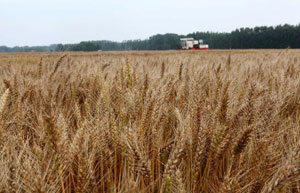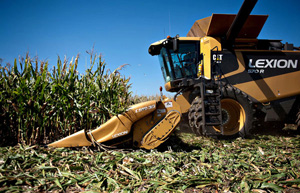"The delay in approvals has influenced the choice of soybean seeds and their output," Lohmar said. "Some farmers invested in other crops instead, such as corn, as China started to import corn in recent years. However, they are still facing problems with regard to bio-technology," he said.
China has returned 887,000 tons of US corn shipments tainted with a genetically modified strain not approved by the Ministry of Agriculture since last October.
These corn shipments were found to contain the unapproved MIR162, a strain of insect-resistant transgenic corn, according to the General Administration of Quality Supervision, Inspection and Quarantine.
US soybean shipment hit new high
Lifted by the strong domestic demand for feed, edible oil and meat, China will import a record quantity of soybean from the US during the 2013-14 market year (Sept 2013 - Aug 2014).
China, the biggest international buyer of US soybean, agreed to import 27.5 million metric tons of soybean from the US during the 2013-14 market year, up 22 percent on a year-on-year basis.
"China's rising demand for soybeans is mainly driven by a change in people's dietary habits. They have shifted from grains to more oil and meat," said Zhang Xiaoping, director for China at the US Soybean Export Council.
Soybeans are widely used in China for cooking oil and animal feed. China's soybean imports rose by 10 percent to 63.38 million metric tons in 2013 from a year earlier, according to the General Administration of Customs.
"The demand for soybean meals, edible oil, and soybean-based fish and hog feed will provide many opportunities for US soybean exporters. We anticipate huge potential in these sectors," Zhang said.
Alan Kemper, director of the American Soybean Association, said China has a limited soybean-growing capability to meet its meat production demand, prompting the country to import more soybeans and corn from the world market.
As China's staple grain production base has moved from south to its northeastern region, it is difficult to increase China's soybean output within a short period because farmers in the northeast cannot get more land or convert rice and corn farmlands to grow soybean. With rising farming equipment prices and limited arable land, the cost of raising domestic output has also become higher.
 |
 |
| Wheatharvestseason in China | China to continue grain imports |
